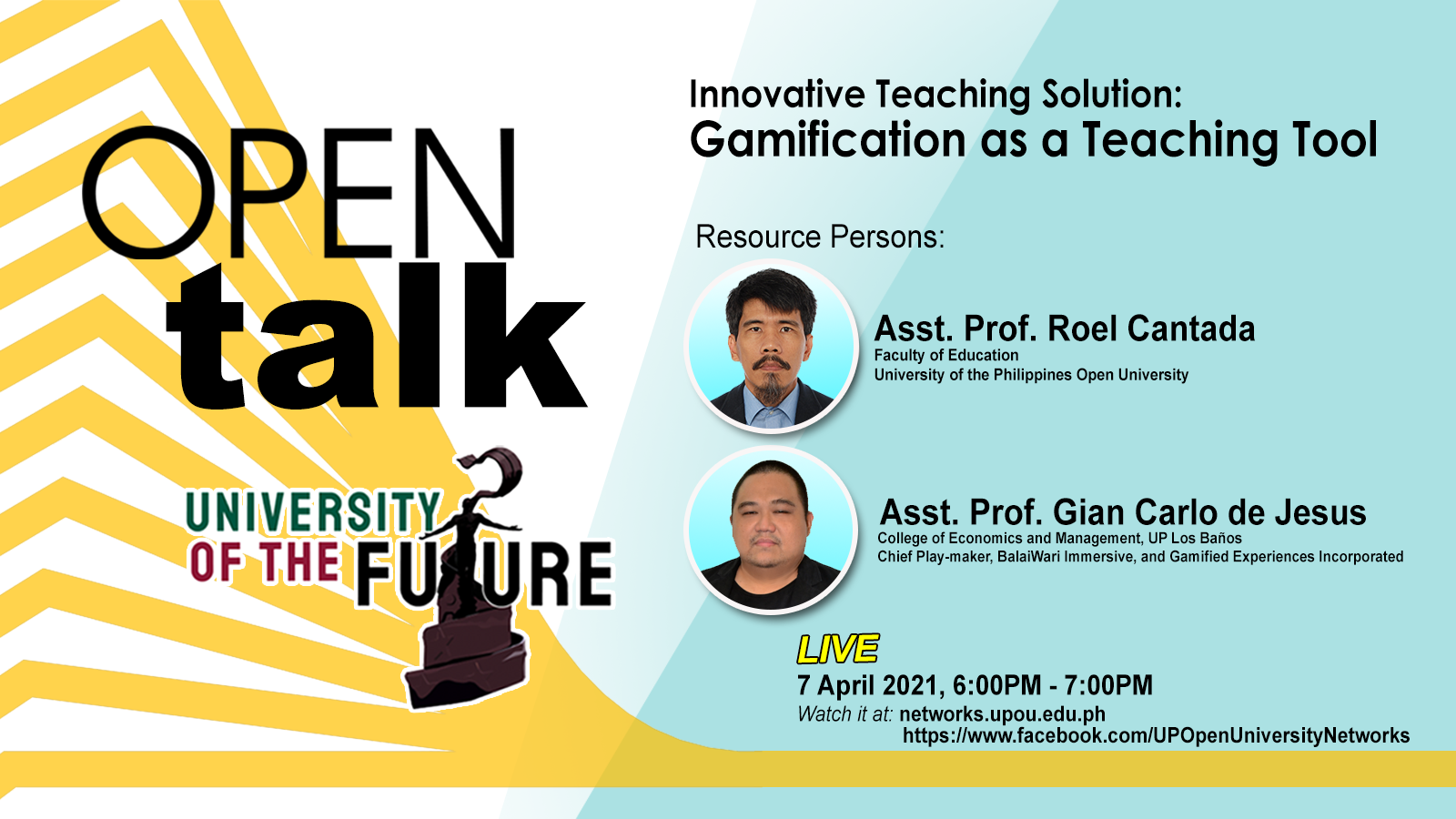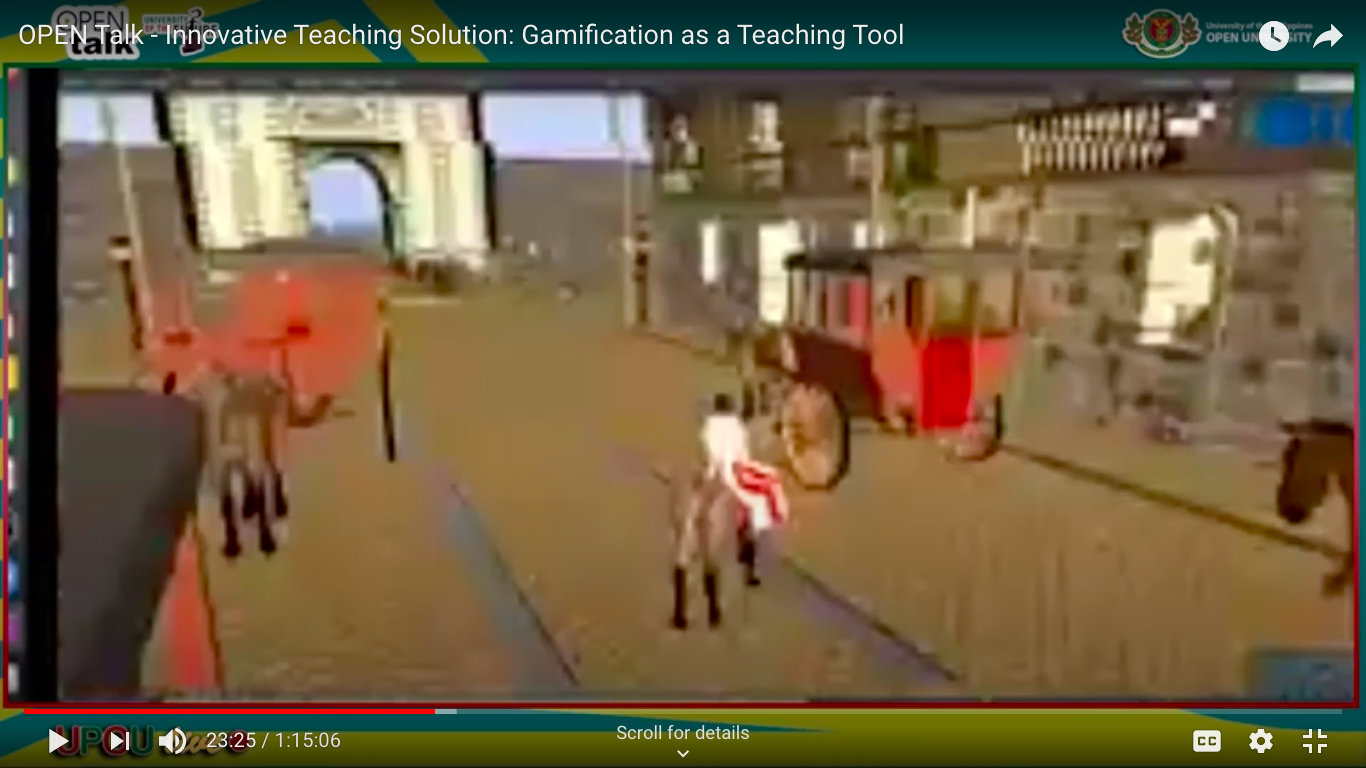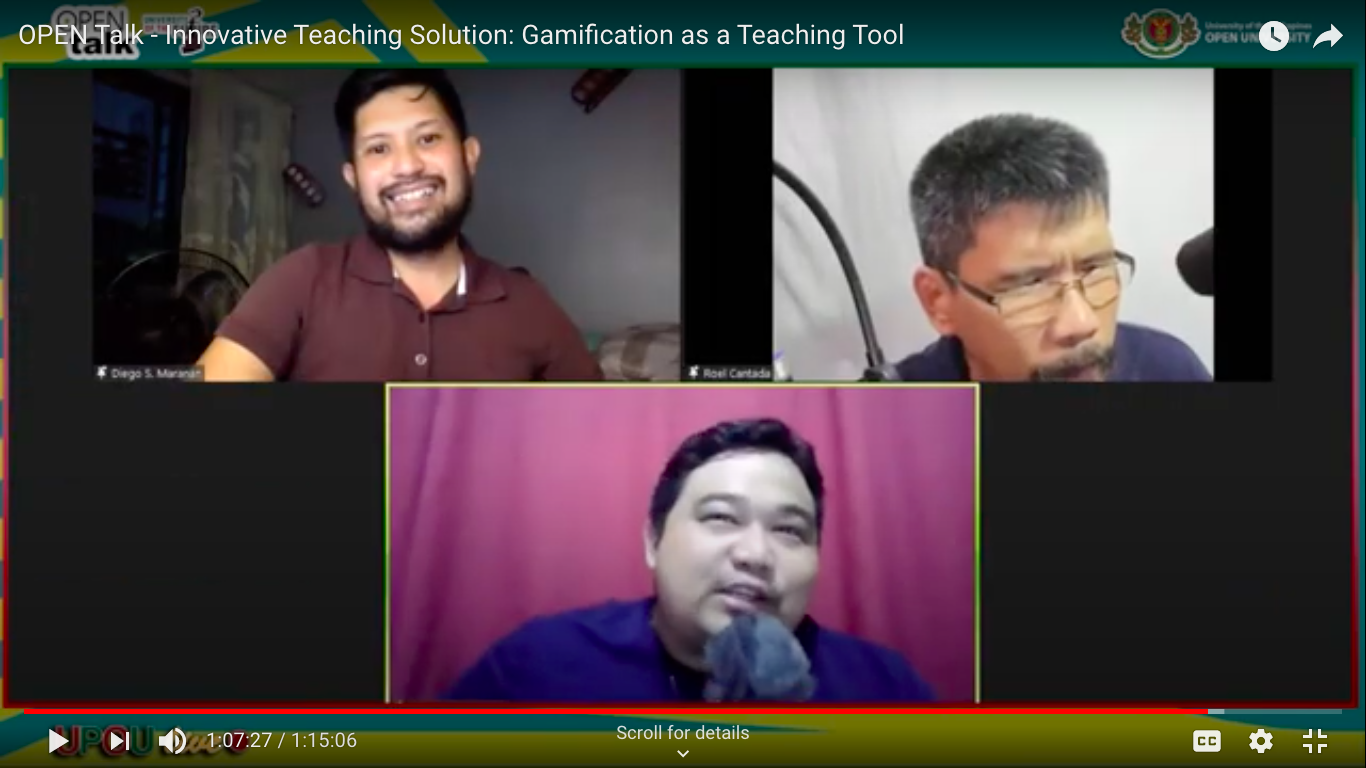On 07 April 2021, the University of the Philippines Open University (UPOU) held the third episode of OPEN Talk entitled “Gamification as a Teaching Tool. ”

Dr. Diego Maranan, Program Chair of UPOU’s Bachelor of Arts in Multimedia Studies (BAMS) and moderator of the episode, introduced the topic and its importance to the present educational setting. According to him, “Many of us might have heard stories from parents who thought that their children were participating in online classes; or from teachers who think that they’re discussing with their students but in reality, the students are actually busy with something else altogether, playing video games. This leads us to think about whether these instances can provide an opportunity to engage with students better.”
The episode featured Asst. Prof. Roel Cantada from the Faculty of Education, UP Open University and Asst. Prof. Gian Carlo de Jesus from the College of Economics and Management, UP Los Baños and Chief Play-maker of BalaiWari Immersive, and Gamified Experiences Incorporated, as resource persons.
Asst. Prof. Cantada stated that he is coming from the perspective of academics doing game research. As his segment introduction, he used Caitlyn Becker’s definition, which states “that gamification is the use of the game elements, in a non-game context.” He further explained that Gamification is actually just the use of the game elements and applying these to non-game things like a course or a class. He used this common definition of gamification since it is often used “to drive motivation, to make something more playful and game-like.” In relation to game-based learning, Asst. Prof. Cantada further explained that it is the process and practice of learning using games from the learner’s point of view. He further clarified that gamification or game-based learning is not a game per se but rather an approach to learning.
Dr. Maranan posed the question to the speakers on how can teachers incorporate gamification in their teaching and learning.

Asst. Prof. Cantada shared his experience in 2011 as a graduate student in distance education. Although there was a challenge that he faced during his 4-week distance education course on history. Some of his students didn’t have the resources to access the learning management systems but his creation of a demonstration related to the topic of Philippine History, specifically Intramuros or a virtual Escolta, helped the students understand the module or topic at hand. He applied the fantasy narrative to the demonstration, where the students were supposed to be time travelers and were able to create their own character sheet to show their role playing. The goal was for the students to go back in history and make sense of the narrative by collecting values, primary sources or documents and such.
Similarly, Asst. Prof Gian Carlo de Jesus defined gamification as a process of converting an ordinary event into a game through the use of game design and with the principle of game elements. In his personal experience, he defined gamification as more than a method rather than being all about badgers, achieving levels or points. Gamification is a mindset where he emphasized three major things: (1) It elicits empathy; (2) It is applied learning; and (3) It has a social aspect.
Asst. Prof de Jesus further discussed the definition of gamification in relation to his practice. For him, gamification is more of changing perspectives within an established framework. In relation to the topic at hand, which is gamification and education, gamification necessitates that there will be a change in relationships or switching of roles. Thus, on a similar note, Asst. Prof. Gian Carlo de Jesus said that he had similar experiences with Asst. Prof. Cantada and excitedly expressed his interest for a possible collaboration on an educational game design.

The discussion truly was filled with informative insights that can be used in the current and in the near future online and distance learning. The recorded version may be viewed from UPOU Networks – Multimedia Center Facebook Page https://fb.watch/4KoGucLiQS/ or the UP Open University YouTube https://youtu.be/IQBC4itfk0g.








